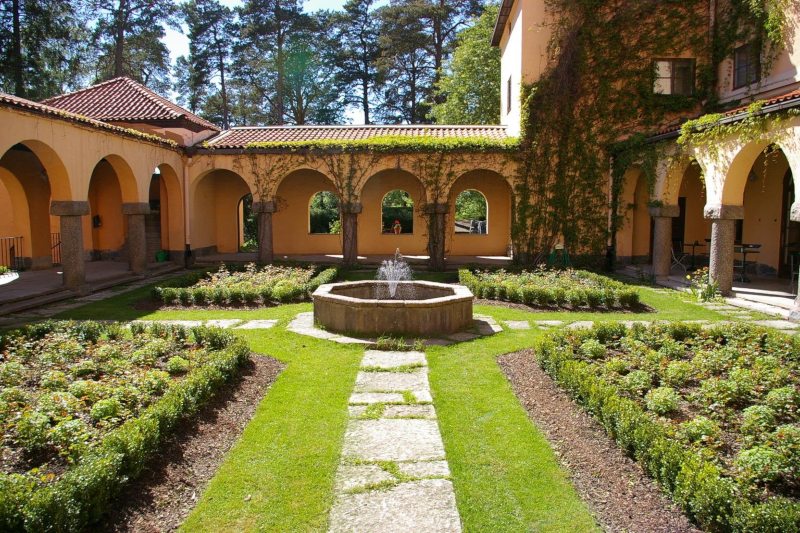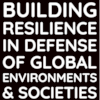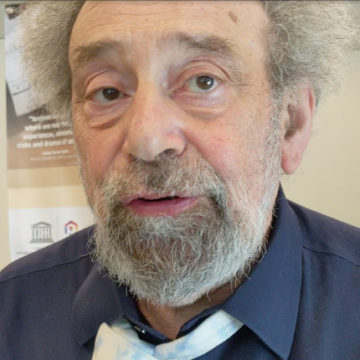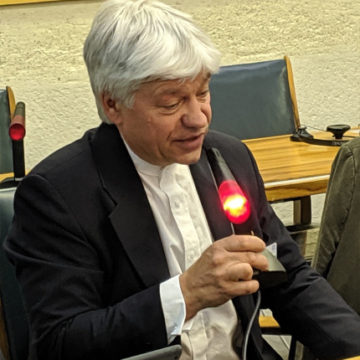Framework for the 3rd BRIDGES Establishment Workshop
Sigtuna, Sweden 5-7 October 2019
In early 2019 a process was set in motion by UNESCO, the International Council for Philosophy & Human Sciences (CIPSH), the Humanities for the Environment global observatory network and the Nordic Network for Interdisciplinary Environmental Studies (NIES) to establish a framework enabling the launch of a global sustainability science coalition under the name of BRIDGES, which stands for Building Resilience In Defense of Global Environments and Societies. The nascent coalition seeks to integrate sciences (natural and social), humanistic fields, arts and technical disciplines, together with a range of societal partners from different sectors, to address the most pressing social, economic and environmental sustainability challenges of the coming decade. The ultimate goal of the emerging coalition is to open new transformative pathways to help achieve a flourishing and sustainable world.
Background to the BRIDGES initiative
In the words of the President of the UN General Assembly in 2013, “Achieving sustainable development is the overriding challenge of the 21st century”. Achieving sustainable development will mean “that all human beings can fulfil their potential in dignity and equality and in a healthy environment” (A/RES/70/1). The United Nations Agenda 2030 for Sustainable Development lays out: 1) the global and local challenges humankind is facing with a view to the needed transformation towards sustainable development; and 2) how the UN Member States have agreed to address these challenges. In the context of the United Nations there is unanimity that sustainability science, an emergent approach of science concerned with an integrated humanistic view of the main dimensions of sustainable development, can provide a vital contribution to international achievement of the 17 Sustainable Development Goals (SDGs/Global Goals) and, more specifically, help to realize the vision set by the UN’s 2030 Agenda for Sustainable Development.
The international UNESCO-organized project Broadening the Application of the Sustainability Science Approach was initiated in October 2015 with support of the Japanese Ministry of Education, Culture, Sports, Science and Technology (Japan/MEXT) to identify good practices and develop policy guidelines to help Member States harness the potential of sustainability science in their sustainable development strategies. This project aimed to help UNESCO Member States and other stakeholders introduce and reinforce a sustainability science approach to transdisciplinary research and education to enable these sectors to respond more effectively to global challenges. The project was carried out over three symposia during a two-year period (2015-2017) organized to foster dialogue and collaboration among sustainability experts and policy-makers. Based on the joint efforts of UNESCO’s Natural Sciences Sector, Social and Human Sciences Sector, Education Sector and Regional Science Bureau for Asia and the Pacific in Jakarta, the project benefited from the guidance of a multidisciplinary steering committee and a drafting sub-committee, and participation of sustainability experts from each of UNESCO’s five regions globally. The major output of the project was UNESCO’s policy document Guidelines for Sustainability Science in Research and Education.

In 2018 discussions began among selected UNESCO sectors and intergovernmental scientific programmes, CIPSH, and numerous institutional and organizational partners active internationally in the sustainability domain (in particular the Humanities for the Environment Circumpolar Observatory) to explore the potential for establishing a global coalition on sustainability science that would pick up where the project “Broadening the Application of the Sustainability Science Approach” left off. The discussions took place in a series of meetings organized in France, Portugal and Sweden over the course of a year that established the basis of the coalition establishment process undertaken in 2019.
The BRIDGES establishment process
Under the working name of Building Resilience In Defense of Global Environments and Societies, a process was set in motion to establish BRIDGES as a global sustainability science coalition over the course of three high-level workshops in 2019, organized in Mação, Portugal and hosted at the Museum of Prehistoric Art (13 March), at UNESCO headquarters in Paris, France (11-12 June) and at the Sigtuna Foundation in Sigtuna, Sweden (5-7 October). These consensus-building establishment workshops are anticipated to pave the way for the official launch of BRIDGES in 2020 as an international network project intended to foster and foreground new research, education and societal co-production initiatives not simply harmonious with UNESCO’s Guidelines for Sustainability Science in Research and Education but ultimately capable of operationalizing these guidelines.
The ambition of the emerging BRIDGES Coalition is to introduce exemplary transversal and transectoral projects connecting humanities and social sciences disciplines with natural sciences, applied scientific fields and the arts. As an equivalent priority the coalition will also seek to promote meaningful co-production between this broader and more inclusive configuration of academic knowledge communities and non-academic stakeholders from society through co-designed case studies focused on achieving sustainable environments and societies. Pilot projects to be developed through the coalition will aim to demonstrate and share good practice from different case studies internationally and at multiple scales: locally, nationally, regionally. In these efforts the unfolding BRIDGES community is expected to work in parallel with other efforts led by UNESCO programmes and UN-affiliated scientific councils to promote effective sustainability science through collaborations among member states. BRIDGES aims to achieve these ends through the development, assessment and demonstration of model pilot projects. Consensus building, identification of strategic pathways, framing of governance structures and mechanisms to enable the realization of these ambitions are the focus of the establishment workshops in Portugal, France and Sweden in 2019.

The BRIDGES workshop in Sigtuna, 5-7 October
The BRIDGES meeting taking place at the Sigtuna Foundation 5-7 October 2019 is the third and final workshop in the establishment process committed to by UNESCO and the other organizing partners in 2018. Establishing the programmatic and procedural foundation for BRIDGES as an international coalition for action in sustainability science is a key objective during the high-level discussions taking place 5-6 October. Following this high-level workshop, a symposium will take place at the Sigtuna Foundation on Monday 7 October (10.15 – 16.30) for a wider public that may be interested to learn more about the BRIDGES initiative.
The symposium will showcase the resources and vision of the combined partners that have entered into the BRIDGES establishment process. An additional aim is to provide inspiring discussion and dialogue on the challenges and opportunities that can be met in concerted efforts to build resilience and sustainability through successful integration of diverse actors, stakeholders, knowledge domains and action communities. Featured speakers in the symposium will include key participants from the high-level BRIDGES Sigtuna workshop.
The first BRIDGES theme of BifrostOnline showcased some of the scientific projects, programmes, networks and community initiatives presented at the second BRIDGES establishment workshop at UNESCO headquarters in Paris, 11-12 June 2019.

The present theme of BifrostOnline offers candid insights from stakeholders on the discussions as they carry over from Paris to the final BRIDGES establishment workshop in Sigtuna. The workshop is expected to produce an action plan for 2020 and beyond, including exemplary pilot activities at identified sites based on effective models of interdisciplinary and transdisciplinary science, while also enabling meaningful co-production between this broader and more inclusive configuration of academic actors and non-academic stakeholders from society through co-designed and co-executed case studies, experimentation of innovative forms of community-level action, training interventions in both formal and informal educational contexts and international mutualization of knowledge through strategic development of a communications platform.
Such actions can help to operationalize sustainability science in the short-term (the coming 2-3 years) by providing proof of concept and flexible models of co-production adaptable to diverse socio-environmental, economic and cultural conditions at a range of sites internationally. The successful outcome of the Paris meeting has created a significant opportunity for the field to consolidate institutional collaboration and delivery capacity at the Sigtuna meeting as BRIDGES gears up for an official launch in 2020, working closely with UNESCO, CIPSH, Humanities for the Environment and other scientific, educational and cultural organizations internationally as a closely affiliated but independent partner committed to the principles of sustainability science as a means to support the Sustainable Development Goals and the United Nations’ Agenda 2030.






